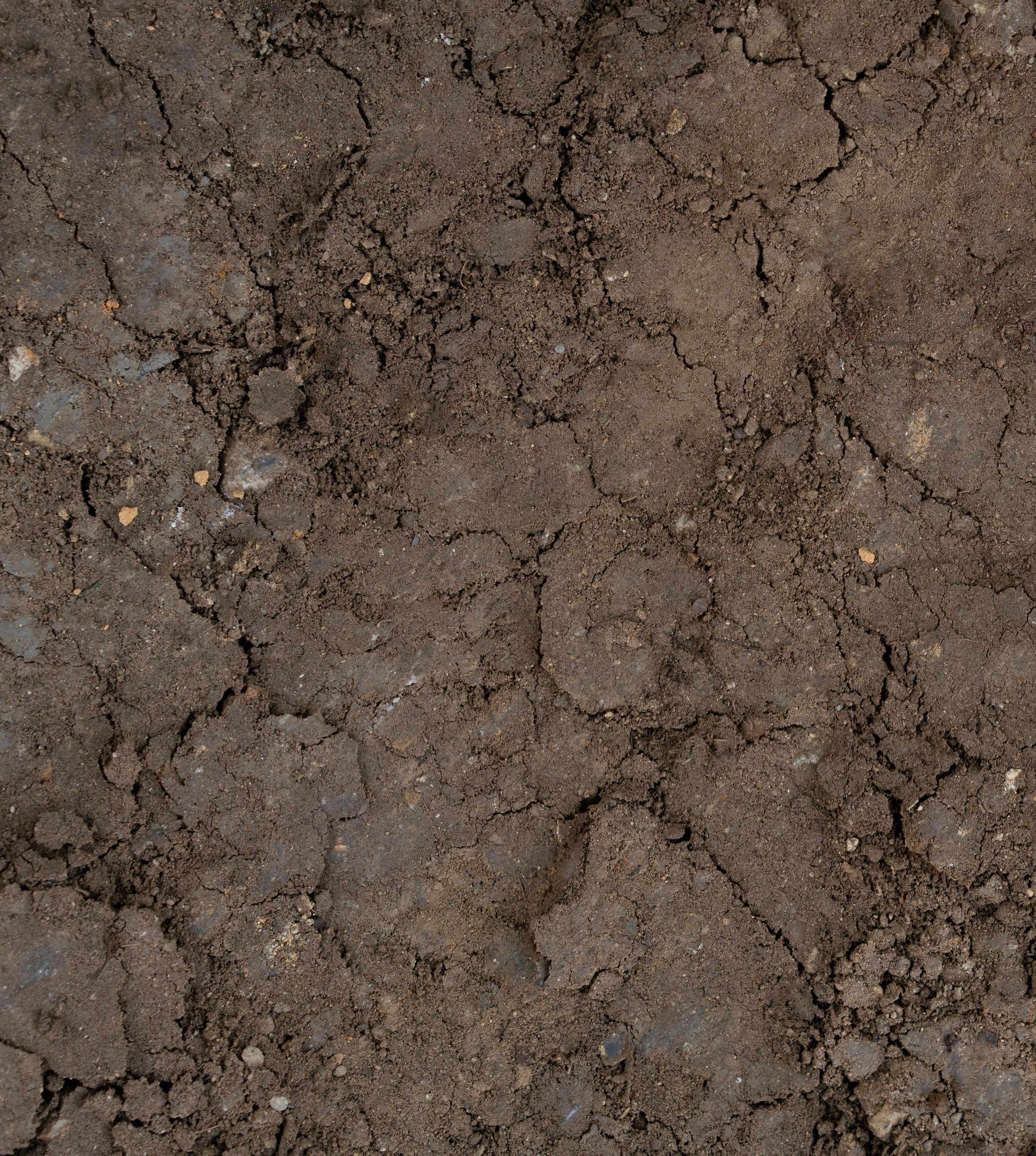
2021 Sustainability Report
Sustainability is essential to the success and future of California’s dairy industry. By prioritizing sustainable practices, we can protect our natural resources, support the health and well-being of our animals, and provide high-quality, nutritious milk for generations to come.
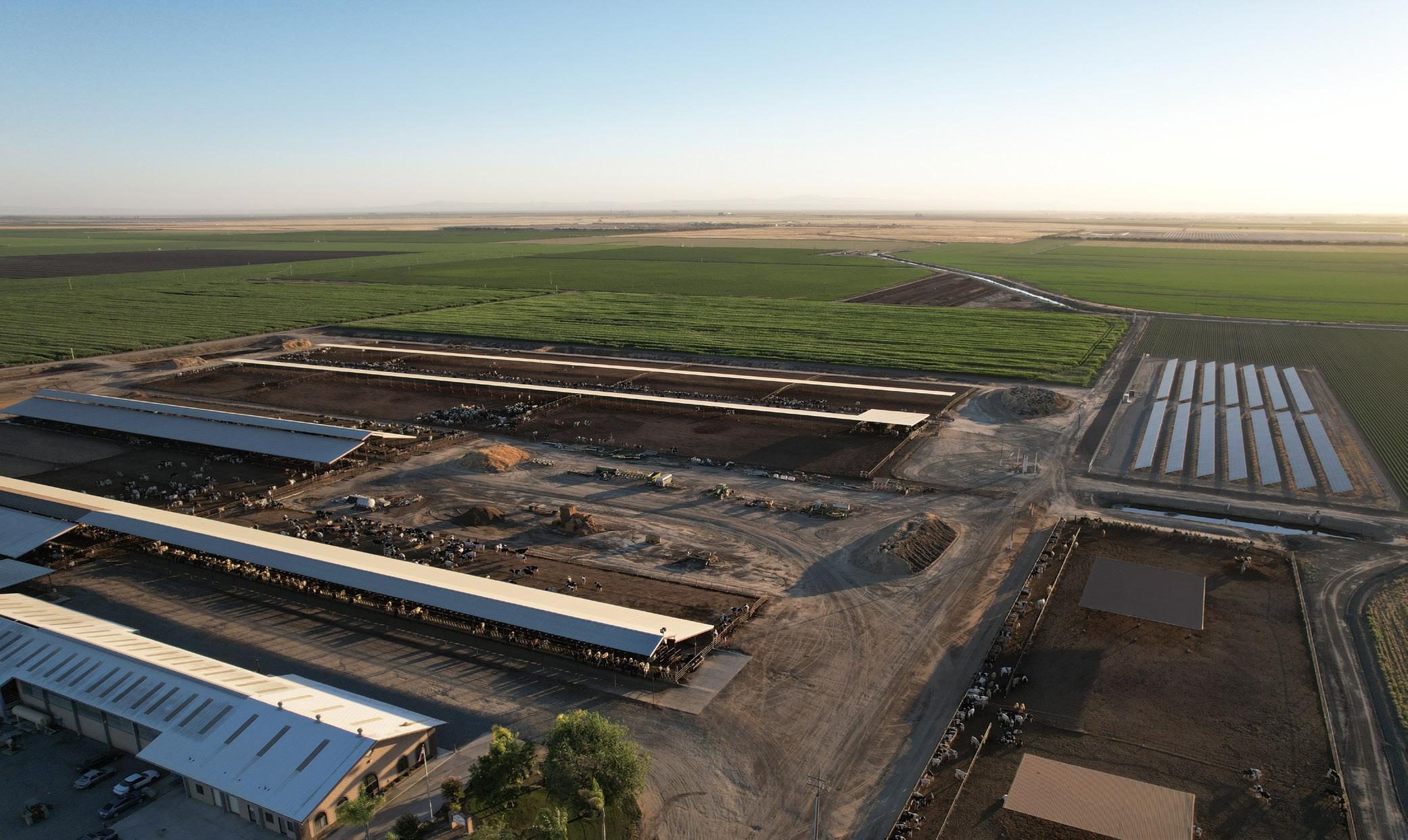
2
Dear Stakeholders,

At California Dairies, Inc., we remain committed to responsibly, ethically, and sustainably producing wholesome and nutritious dairy products. We recognize sustainability is not an endpoint, but a journey. We are taking this journey with our farmer-owners, our employees, our customers, and our industry partners. Working together as a cooperative, we are ensuring the well-being of our people, our planet, and our farms.
We are committed to reducing our carbon footprint across the business by 30 percent by 2030, and we are already on pace to reach an annual carbon emission reduction of two million metric tons.
We continue to invest in innovation to make our milk processing and manufacturing operations more sustainable, while reducing our transportation footprint.
We are partnering with our dairy farm families to develop new ways to conserve resources, reduce waste, and improve climate and environmental outcomes, while ensuring the well-being of animals on our farms.
We continue to invest in our employees and provide them with the resources needed to succeed, starting with a safe place to work and a positive workplace culture.
Our operations, including our farms, are unique in California—a state well-known and respected for its early adoption of sustainable practices. Everything we do is built upon that solid foundation of transformative innovation and success here in the Golden State.
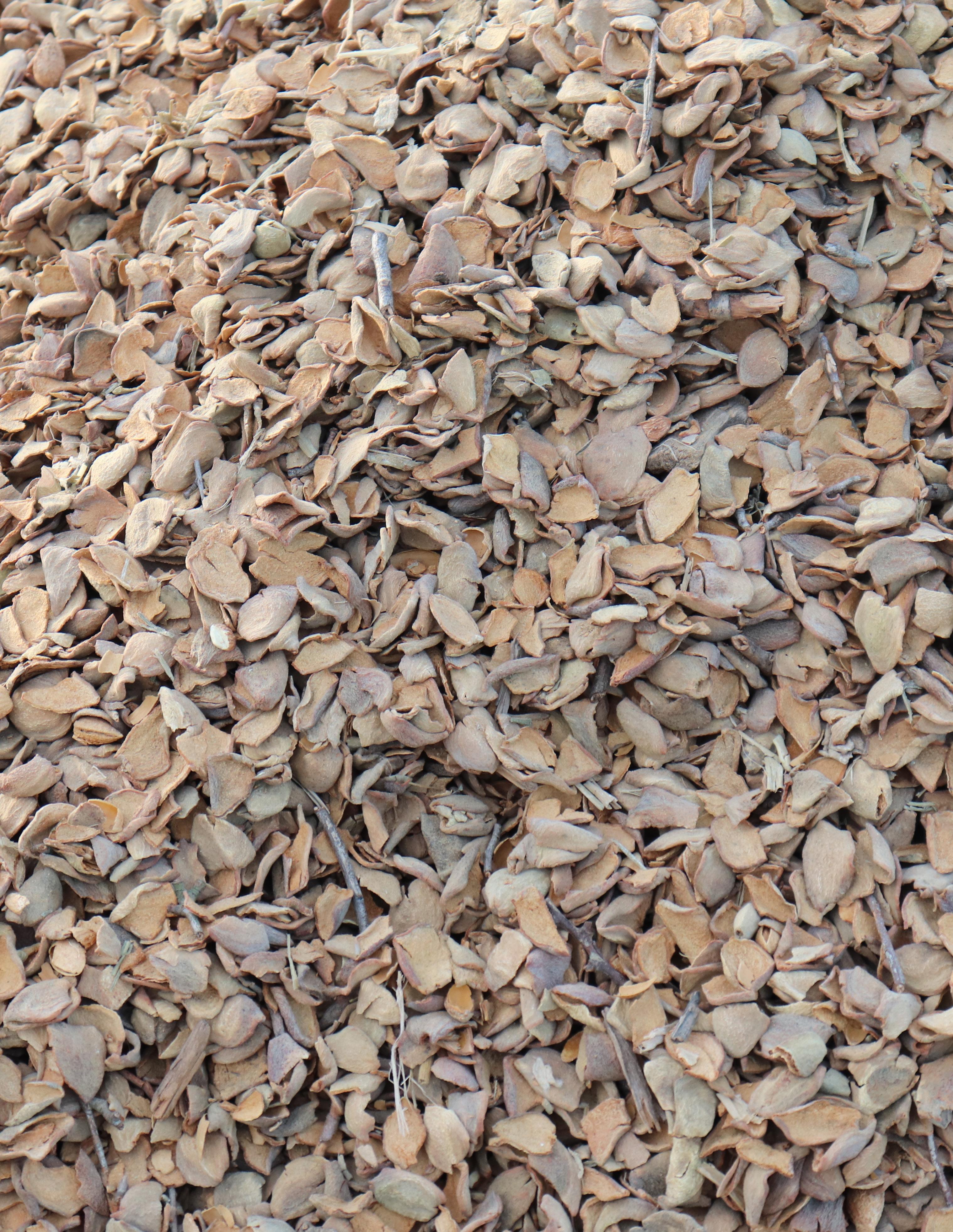
We remain committed to our sustainability goals, increased transparency about our progress, and continued improvement in our social responsibility commitments.
Finally, as we continue on this journey, our cooperative culture is rooted in having and meeting higher expectations. We fully recognize that sustainability is key to our planet, our society, and our business future.
We invite you to learn more about our operations, our leadership, and progress as you explore our environmental, social, and governance efforts. Further detailed scope analytics are available to customers upon request.
Sincerely,
Simon Vander Woude & Brad Anderson
Simon Vander Woude Chairman of the Board
Brad Anderson President and CEO


About This Report
California Dairies, Inc., the #1 Dairy Cooperative in the Leading Dairy State
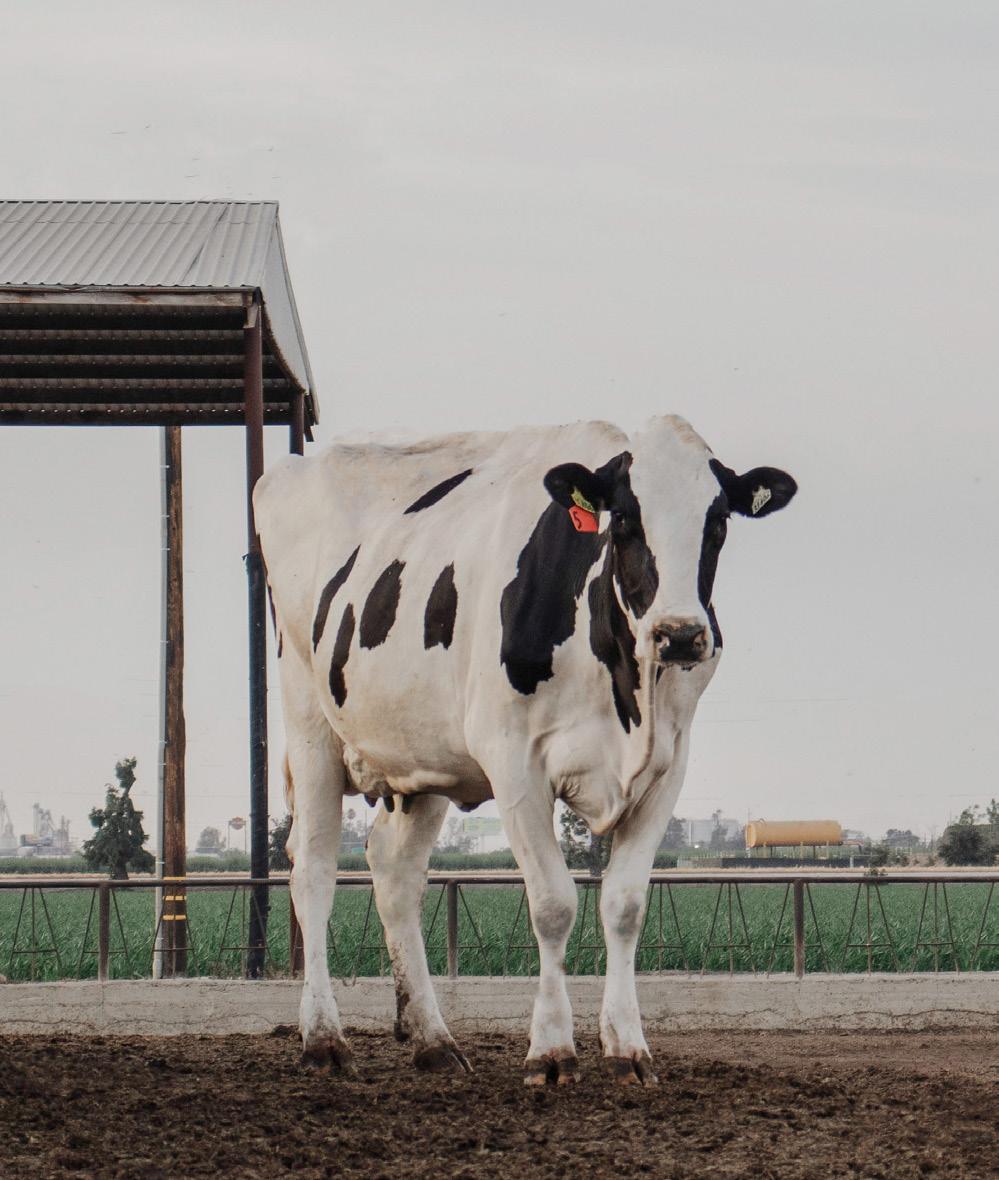
Here at California Dairies, Inc., we genuinely care about our communities and our planet. We believe in the importance of continuous improvement. We also believe in the value of transparency and in letting our customers, neighbors, and stakeholders see how we are setting and meeting goals along our sustainability journey. We voluntarily published our first sustainability report in 2014, and we are pleased to continue demonstrating our progress.
This report includes key performance indicators, including companywide carbon accounting for the 2020 calendar year and additional Environmental, Social, and Governance (ESG) KPIs from as recently as the 2021 year. Importantly, this report greatly expands our efforts to describe CDI’s carbon footprint, moving beyond our milk processing facilities to include carbon footprint reporting for more than 300 member-owner
Who We Are
About the Company
CDI is a milk marketing and processing cooperative co-owned by more than 300 California dairy families. From Sacramento County to San Diego County, independent family-owned CDI member dairy farms dot California’s rural landscape, collectively shipping 17.1 billion pounds of milk in 2021. CDI’s cooperative structure benefits our member dairies by offering a reliable home for their milk, a fair opportunity to compete in the global market, and an investment in dairy product manufacturing.
dairy farms, and for the transportation network that delivers milk from farms to our processing facilities and ultimately to our customers. Going beyond energy use and carbon footprint, we continue to also describe key material aspects of our efforts to recycle and reuse resources and conserve and protect water.
As we advance, CDI is committed to annual reporting of key performance indicators outlined in the report. This sustainability report summarizes performance related to issues significant to our economic, environmental, and societal impacts. The report was prepared in reference to the U.S. Dairy Stewardship Commitment (USDairy.com), which aligns with metrics included in globally recognized sustainability programs, such as the Dairy Sustainability Framework, the International Organization for Standardization, and the Global Reporting Initiative.
4
Quality Products Enjoyed Locally, Nationally and Globally

Milk Powder
CDI produces about 30% of the U.S. milk powder supply, manufacturing over 809 million pounds of nonfat dry milk and skim milk powder in 2021, and exporting more than 514 million pounds of that production to global customers.1
Butter
As the largest producer of butter in the U.S., CDI produced 22% of the nation’s supply, manufacturing 451 million pounds of butter in 2021.2
District 4
Bulk Fluid Milk
CDI produces a variety of bulk fluid milk ingredients, including rbST-free milk, cream, condensed, and ultra-filtered milk, used in the manufacture of nutritious California milk products.
Processing Facilities
102 dairies, 8.3M pounds/day
District 3
87 dairies, 14.2M pounds/day
District 2
88 dairies, 15.3M pounds/day
District 1
55 dairies, 9.1M pounds/day
Total
332 farms, 46.9M pounds/day
Proud of Our Brand Partners
As a wholly owned subsidiary of CDI, Challenge Dairy provides a complete line of butter products to the retail trade, as well as a diversified line of products to the foodservice and food ingredients business. Both the Challenge and Danish Creamery brands have more than a century long history and are premium butter brands.
CDI is a majority owner of DairyAmerica, which markets milk powders in the U.S. and internationally.3 DairyAmerica markets approximately 50 percent of all milk powder produced in the U.S. and exports powder to more than 50 countries worldwide.
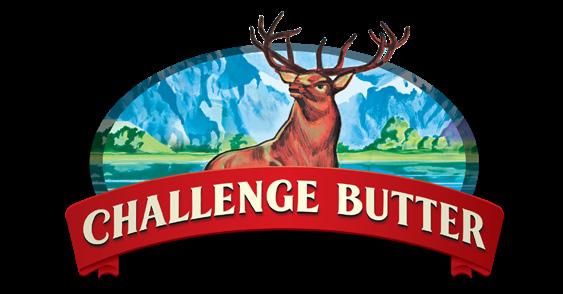
5 2021 www.CaliforniaDairies.com
Turlock North & South Los Banos Fresno Visalia Tipton 1 Based on 2021 U.S. Total Butter Production (CLAL.it, 2021). 2 Based on 2021 U.S. Total NFDM & SMP production (CLAL.it, 2021). 3January 2023, DairyAmerica became a wholly owned California Dairies, Inc. subsidiary.
The Golden State Advantage
The fifth-largest economy in the world, California is also well known for its abundant agricultural production, beautiful natural landscapes, and cutting-edge technology. It should be no surprise that California also leads the world in sustainable dairy production. From fostering innovation to protecting the environment and worker rights, everything we do is rooted in California’s progressive culture and higher expectations.
Our Products
Headquartered in the heart of California, with farms and facilities throughout the Golden State, California Dairies, Inc. is on the leading edge of sustainable dairy production.
Our World
Our farms are leading the nation and world in dairy methane reduction efforts and the deployment of dairy digesters, renewable energy, and other environmental impact mitigation projects. Excelling in production efficiency, our farms have greatly reduced reliance on resources, such as land, water, energy, fertilizer, and pesticides.
Our Communities
Our operations create well-paying, well-benefitted, secure, and safe employment for our local communities, and a diverse and productive workforce.
Our Animals
We are committed to animal well-being, including cow health, comfort, care, and humane treatment. Each of our farms participates in routine, independent audits to ensure standards are met.
CDI's Golden State Advantage delivers the highest quality, most sustainable dairy products to our customers around the world.
6
Goals
Total GHGs
Environmental
Animal Well-Being
CDI is aligned with the U.S. Dairy Net Zero Initiative (NZI) to achieve carbon neutrality or better by 2050.
CDI is committing to a 30% reduction in direct and supply chain greenhouse gases from 2020 levels by 2030.4
By the end of 2025, 100% of CDI farms will be assessed for environmental footprint.
Increase California Dairy Quality Assurance Program (CDQAP) 3rd party environmental certification on eligible CDI farms from 82% to 100% by 2025.
100% of CDI farms are enrolled and maintain compliance with the Dairy FARM Animal Welfare program.
No CDI farms use tie-stalls or tail docking, ensuring for better animal health, comfort, and freedom of movement.
100% of CDI member farms maintain a documented Veterinarian Client Patient Relationship (VCPR). 100% of CDI milk supply complies with U.S. and international somatic cell export standards, further supporting animal health.
100% of CDI farms will utilize a dairy nutritionist by 2025, to ensure maximum animal health and minimize enteric emissions.
Water
Quality,
Use & Recycling
100% of CDI farms continuously monitor all wells to ensure water quality.
• 100% of CDI farms in the Central Valley are participating in the Central Valley Dairy Representative Monitoring Program (CVDRMP) to ensure safe drinking water.
100% of CDI farms in designated areas are participating in local groundwater sustainability agencies to ensure sustainable groundwater use.
100% of reclaimed water from CDI processing facilities is beneficially reused.
Electricity Use
Transportation
Supplier/Sourcing Responsibility
70% of electricity use within CDI Plants will be renewable or carbon-free by 2030 and 100% by 2045.
• 80% of on-farm electricity use will be renewable or carbon-free by 2030 and 100% by 2045.
• A 15% reduction in farm-to-plant milk transportation miles from 2020 levels will be achieved by 2025.
100% of CDI suppliers will enroll in our traceability and responsible sourcing platform by 2025.
100% of CDI farms will have a documented Biodiversity Action Plan by 2025.
“CDI is committed to advancing our sustainability efforts as fast as technology and farmer economics allow.” —Brad Anderson, CDI President & CEO
Farm Soil Health/Regenerative Ag 4CDI recognizes all actual scope 3 reductions. 2021 7 www.CaliforniaDairies.com
Governance: a Culture of Sustainability
As with our farms, sustainability principles are embedded at all levels of our organizational culture.
Board of Directors
16 member-owner leaders that promote policies that support the production of safe, high-quality, and sustainable dairy products.
Sustainability Committee
Five member-owners that advise CDI environmental and social sustainability efforts.
Executive Leadership Team
Senior management prioritizes purposeful sustainability efforts throughout their respective areas of influence.


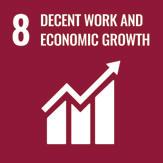
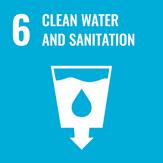

Sustainability Staff
This team is focused on sustainability initiatives and emerging technologies, supply-chain opportunities, and sustainable progress both in our plants and throughout our member farms.
California’s dairy industry is already leading the way in pioneering and adopting sustainable practices and technologies. As we continue to innovate and adopt new technologies, we are forging paths to achieve efficiency and value-generation simultaneously. We look forward to documenting our progress and demonstrating to our valued consumers that we can lead the world in producing the world’s highest-quality dairy products while protecting our valuable natural resources.
Partnering with a Purpose
Sustainability is not a catchword at CDI; it is at the very core of everything we do. As a vertically integrated, farmer-owned cooperative, we were built on the value of working collaboratively for the greater good.
As a founding member of the U.S. Dairy Stewardship Commitment, CDI is committed to demonstrating U.S. dairy’s positive impact in a transparent and meaningful way. Along with responsible production and nourishing communities, continuous improvement is a key factor in this commitment. CDI actively collaborates with fellow Commitment adopters to advance dairy sustainability through stakeholder aligned metrics and globally recognized standards, including the U.N. Sustainable Development Goals (SDGs). As the largest dairy producing country in the world, U.S. Dairy’s efforts can be directly or indirectly connected to all SDGs. The U.S. Dairy Stewardship Commitment has identified the following as SDGs the signatory community plays a leading role in and can make real progress towards:
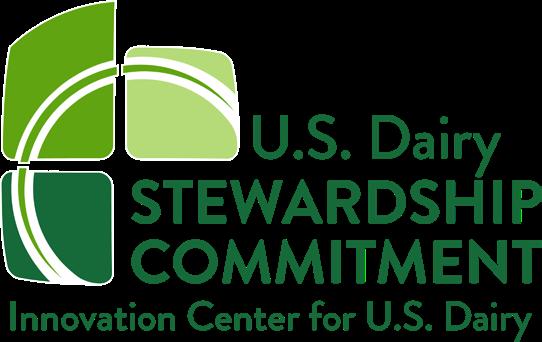
8
A founding member of California’s sustainable dairy farm coalition
In 2001, CDI co-founded Dairy Cares, a statewide coalition dedicated to ensuring the long-term sustainability of California’s farming families. As a founding member, CDI has invested more than $3.5 million to date to expand research and understanding, and to advance sustainable farming practices, helping improve air and water quality, reduce greenhouse gas emissions, and ensure animal well-being.
A partner in the California Dairy Sustainability Summit

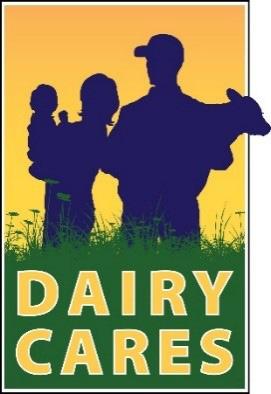
Since 2018, CDI has served as an event partner for the California Dairy Sustainability Summit, bringing together hundreds of participants, including dairy farmers, state officials, researchers, technology providers, industry leaders, and other stakeholders to discuss strategies for meeting ongoing challenges and further improving environmental and economic sustainability.

A leader in the U.S. Dairy Sustainable Community
CDI and others throughout the U.S. Dairy community joined together in 2008 to form the Innovation Center for U.S. Dairy, establishing a collective commitment to provide responsibly produced dairy food to the world. Through this partnership, dairy farmers, companies, and key stakeholders throughout the value chain address category-wide priorities and develop industry-aligned tools and resources to support continuous improvement. In 2015, the Innovation Center for U.S. Dairy established the Dairy Sustainability Alliance, providing CDI and other Alliance members a platform to measure, improve, and communicate dairy’s role in supporting sustainable food systems.
Farmers Assuring Responsible Management (FARM) Program

Launched in 2009, the Farmers Assuring Responsible Management (FARM) Program was created by the National Milk Producers Federation in partnership with Dairy Management, Inc. This program allows U.S. dairy farmers to demonstrate their commitment to producing high quality, safe milk with integrity. In 2010, CDI became one of the first dairy cooperatives to adopt the FARM program. Today, all CDI dairies continue to demonstrate their commitment to continuous improvement in animal care, antibiotic stewardship, biosecurity, environmental stewardship, and workforce development by maintaining compliance and good standing with the FARM program.
Farmers Assuring Responsible Management (FARM) Environmental Stewardship (ES)
The Farmers Assuring Responsible Management (FARM) Environmental Stewardship (ES) program enables FARM participants to evaluate a dairy farm’s carbon footprint by focusing on greenhouse gas (GHG) emissions, energy use, and Nutrient Management Plans. CDI will perform FARM ES evaluations on one-third of member-owner farms each year, evaluating all our member farms by the end of 2025. Through these evaluations, we will aggregate each member-owner farm’s GHG emissions and track reductions over time to ensure CDI’s goals are met.
9 2021 www.CaliforniaDairies.com
Advancing our Workforce
At CDI, people come first. We invest in programs, policies, and opportunities that enrich employee professional development and the work environment, foster a culture of responsibility, cooperation, and success, and attract and retain top talent.
CDI has a diverse and talented workforce. In addition to competitive wages, employees receive a variety of benefits as part of the CDI team, such as: family medical, dental, and vision insurance, retirement plans, including employer contributions, paid holidays and paid vacation, tuition reimbursement, and loss prevention and safety bonus programs.
As a cooperative, we strive to foster belonging and empowerment at work. Action plans have been put into place at each of our operations to close any gaps identified for ensuring our workforce is representative of the markets in which we operate and that opportunities for employment, promotion, and engagement are provided to all.
CDI believes in investing in future leaders. Through our Leadership Pipeline, we've created many channels of talent, built upon the foundation of core leadership competencies that are aligned with and support our company's core values.
CDI Educational & Leadership Development Programs
The CDI Scholarship Program is a competitive program that provides financial awards of assistance to help pay a portion of the cost of college and career training for children of eligible CDI on-farm and processing facility employees.
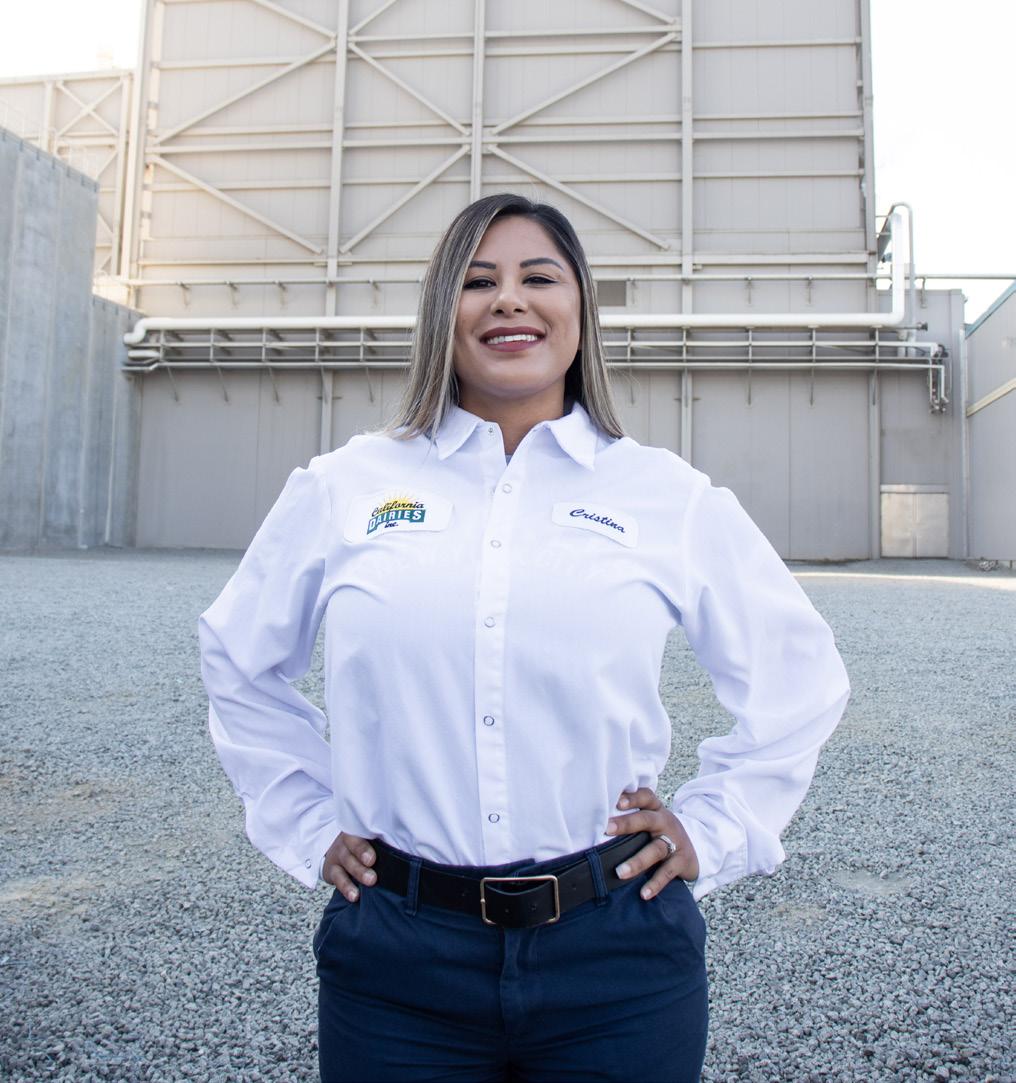
The CDI Summer Internship Program engages undergraduate and graduate students interested in agricultural industry careers. CDI provides wages, relocation, and housing to ensure an enriching and robust professional experience.
The CDI Graduate Program is a two-year program that focuses on the development of leadership skills for recent college graduates. Through broad rotational experiences, CDI provides exposure to all areas, functions, and aspects of the business, further expanding participants' knowledge and understanding of the agricultural industry.
10
80% Men Employee Population 20% Women Manager Population 68% Men 32% Women
Hispanic or Latino Asian White American Indian Alaskan Native Native Hawaiian or Other Pacific Islander Two or more races Black or African American Not Specified
On the Farm
California maintains some of the highest standards in the nation when it comes to on-farm employees. The Golden State Advantage: Our members' on-farm employee benefits include:
Access to overtime wages
Documented meal and break times and audited safety procedures
Wage/Benefit type California Federal/Nationwide
Overtime
1.5x hourly wage after 8.5 hours (up to 12 hours) in any given day, and for the first 8 hours of work on the seventh consecutive day of work. 2x hourly wage for any hours works in excess of 12 in a day or beyond 8 hours on the seventh consecutive day of work.7
Federal law exempts agricultural employers from paying overtime (unless required by state law)8
The FARM Workforce Development program is the benchmark of choice for sustainable management processes and procedures to promote positive human resources and safety outcomes on dairies. Membership wide, our dairies maintain compliance with all aspects of the FARM program, including 2nd-party evaluations of working conditions, compensation benefits, safety management and training, recruitment and hiring processes, discrimination and harassment procedures, and more.
Our success is inextricably linked to the health and well-being of those who work year-round to provide excellent cow care and produce wholesome milk. CDI member-owners are focused on promoting the best practices that will help California dairies remain employers of choice.
11 2021 www.CaliforniaDairies.com
Minimum wage $14.00 per hour 5 $7.25 per hour 6
The highest statewide minimum wages, with nearly all on-farm dairy employees earning above minimum wages
5As of January 1, 2023. California Department of Industrial Relations (dir.ca.gov). 6U.S. Department of Labor (www.dol.gov/general/topic/wages/minimumwage ). 7California Department of Industrial Relations (dir.ca.gov). 733 states have enacted overtime laws; most of those require payment of overtime for agricultural workers after 40 hours a week. The National Agricultural Law Center (nationalaglawcenter.org).
Supporting our Communities
Community Engagement
Our cooperative is comprised of dairy-farm families and employees who align in the important work being done outside of the farms and processing facilities. That work is serving the communities of our employees and member-owners. In 2020, we launched our first Community Responsibility Day, partnering with local nonprofits that focus on supporting communities in Central California, creating healthy families, food and housing security, and child welfare. Year round, CDI member-owners and employees serve their communities through a variety of efforts, including supporting community efforts facilitated
through local churches, giving back to schools and school programs, and being actively involved in youth athletics and service clubs, such as 4H and Future Farmers of America (FFA). Leaders throughout our cooperative serve as board members for organizations that support the well-being and overall survival of our local farming communities, including the Kaweah Water Foundation, Kings Water Alliance, and Valley Water Collaborative. We are generations cultivating our communities for future generations.
Donated over 3.7 million dollars
Volunteered over 4,000 hours
12
By partnering with local organizations, we strive to make a positive difference in our communities. In 2021, our member-owners and employees combined:
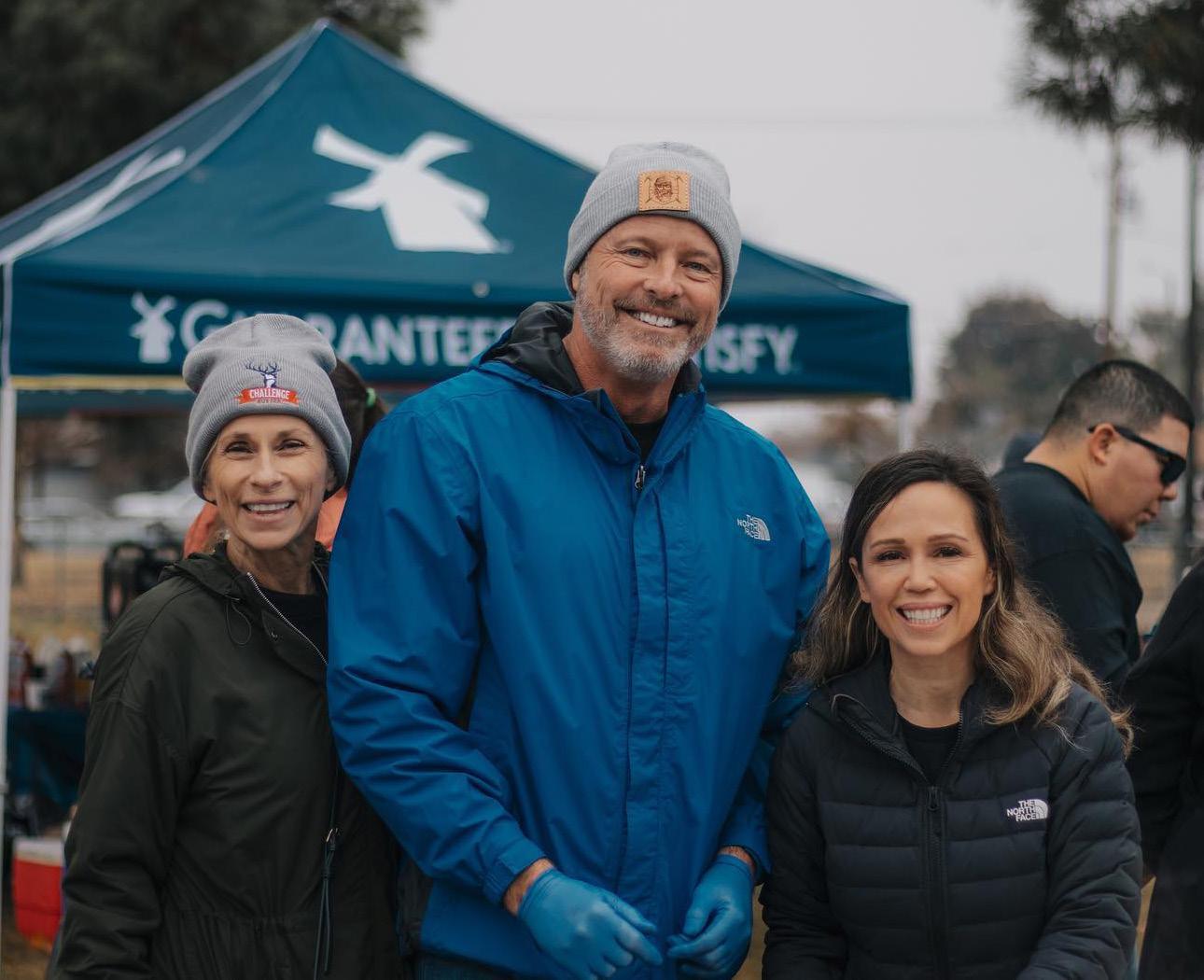


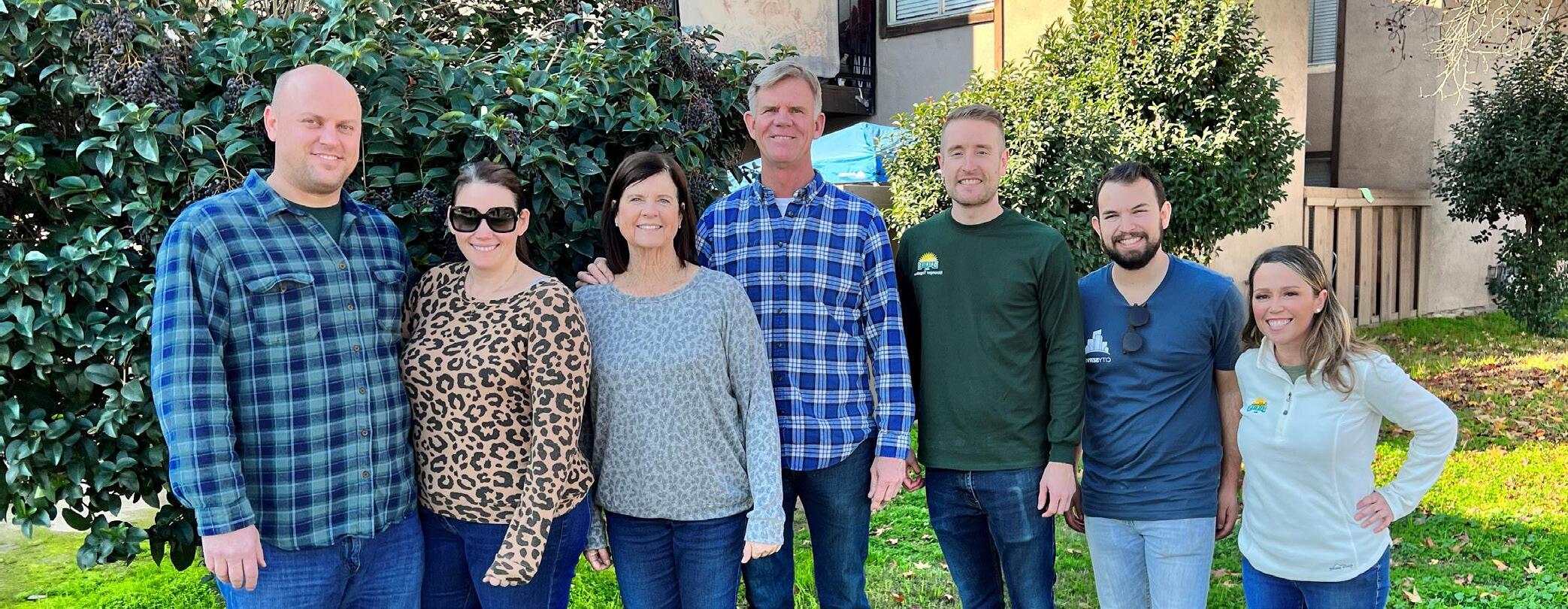




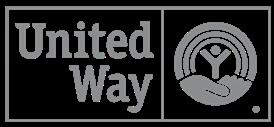




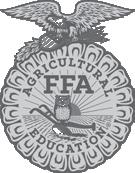
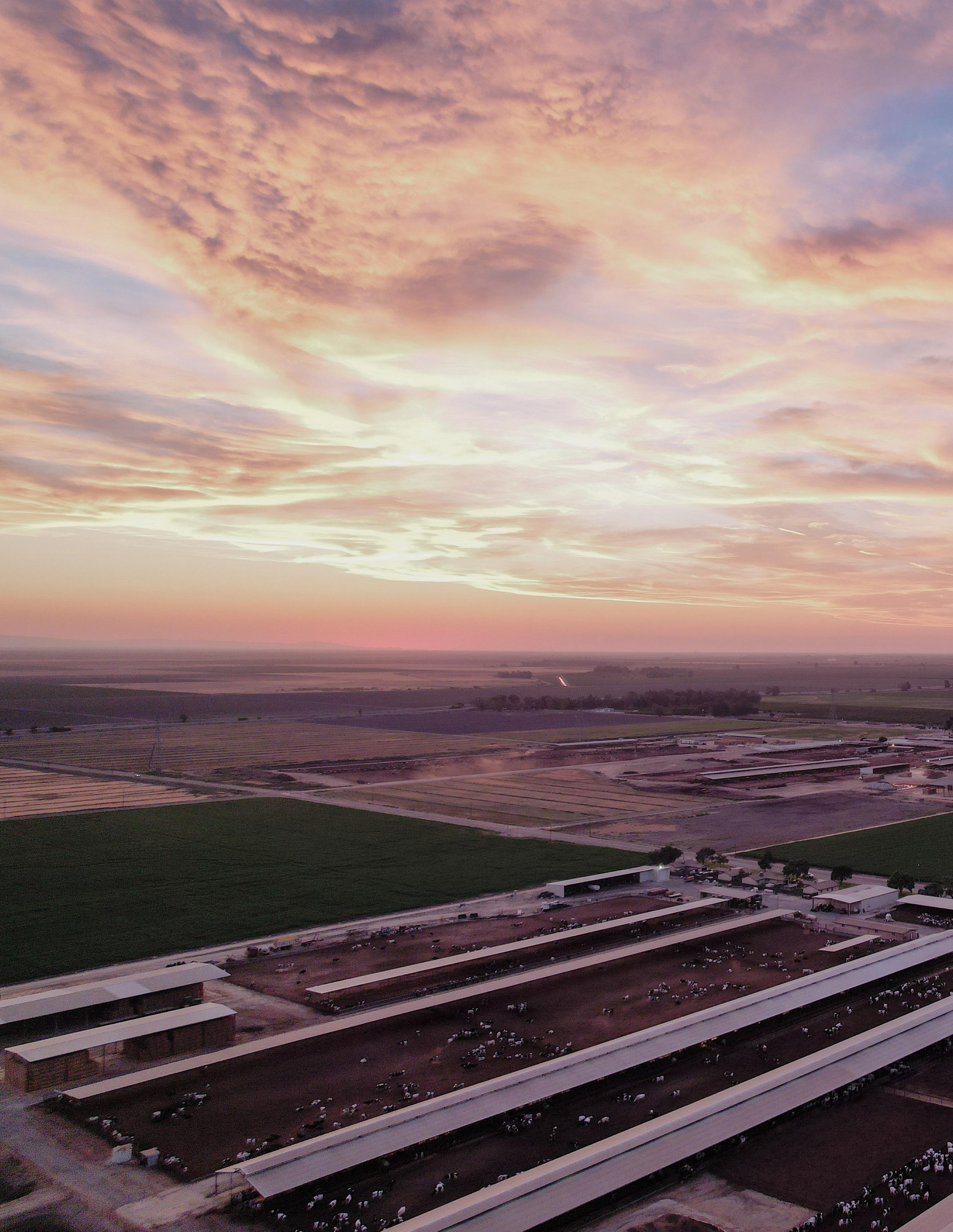
14

“California dairies meet the nation’s highest standards for environmental performance and our dairy families are doing their part not only to protect their local environment, but to contribute to the global effort to reduce greenhouse gases.”
2021 15 www.CaliforniaDairies.com
- Secretary Karen Ross, California Department of Food and Agriculture
Climate-Smart Dairy
California Dairies Leading the Way

CDI’s dairy farmer-members are actively doing their part to achieve a 40 percent reduction in methane emissions by 2030. More than 66 percent of our member farms have already completed or initiated a methane reduction project, and more are in the works.
Continually improving production efficiency through improved cow care, comfort, nutrition, and genetics has allowed our farms to reduce the carbon footprint of each gallon of milk produced by more than 45 percent over the past 50-plus years.10 Through the implementation of methane capturing digesters and other methane avoidance projects, CDI dairy farms are already on pace to reduce an estimated two million metric tons of CO2e annually by 2030.11
66% of CDI milk is produced on farms implementing one or more methanereducing projects
Percentage of CDI milk produced on farm with: an operational digester a digester in progress
16
10Greenhouse gas, water, and land footprint per unit of production of the California dairy industry over 50 years. Naranjo et al., Journal of Dairy Science, 2019. (doi.org). 11Based on a cross-referencing of the California Department of Food and Agriculture and data gathered from digester development companies, cross-referenced by CDI with its member dairy lists. 12Estimate based on CDI analysis of progress by its members against a 2013 baseline, including the construction of digesters and other methane-reducing projects, and expected further progress by 2030 in adopting methane-reducing technology, and expected changes in milk production and milk production efficiency.
0 20 40 60 80 100
33% of CDI’s milk is produced on a farm using a digester. Soon, this number will grow to 49%.12 0 20 40 60 80 100
Energy
• 90% of CDI members have installed plate coolers to efficiently pre-cool milk, enhancing quality while reducing overall energy use.
• 88% of CDI members have converted pumps or fans to variable speed drives (VSDs) to reduce overall energy use.
• 45% of our dairy farms, representing 57% of CDI milk supply, have installed on-farm solar systems to offset energy use.
• More than 75% of the electricity used on our farms is from renewable or carbon-free energy sources.
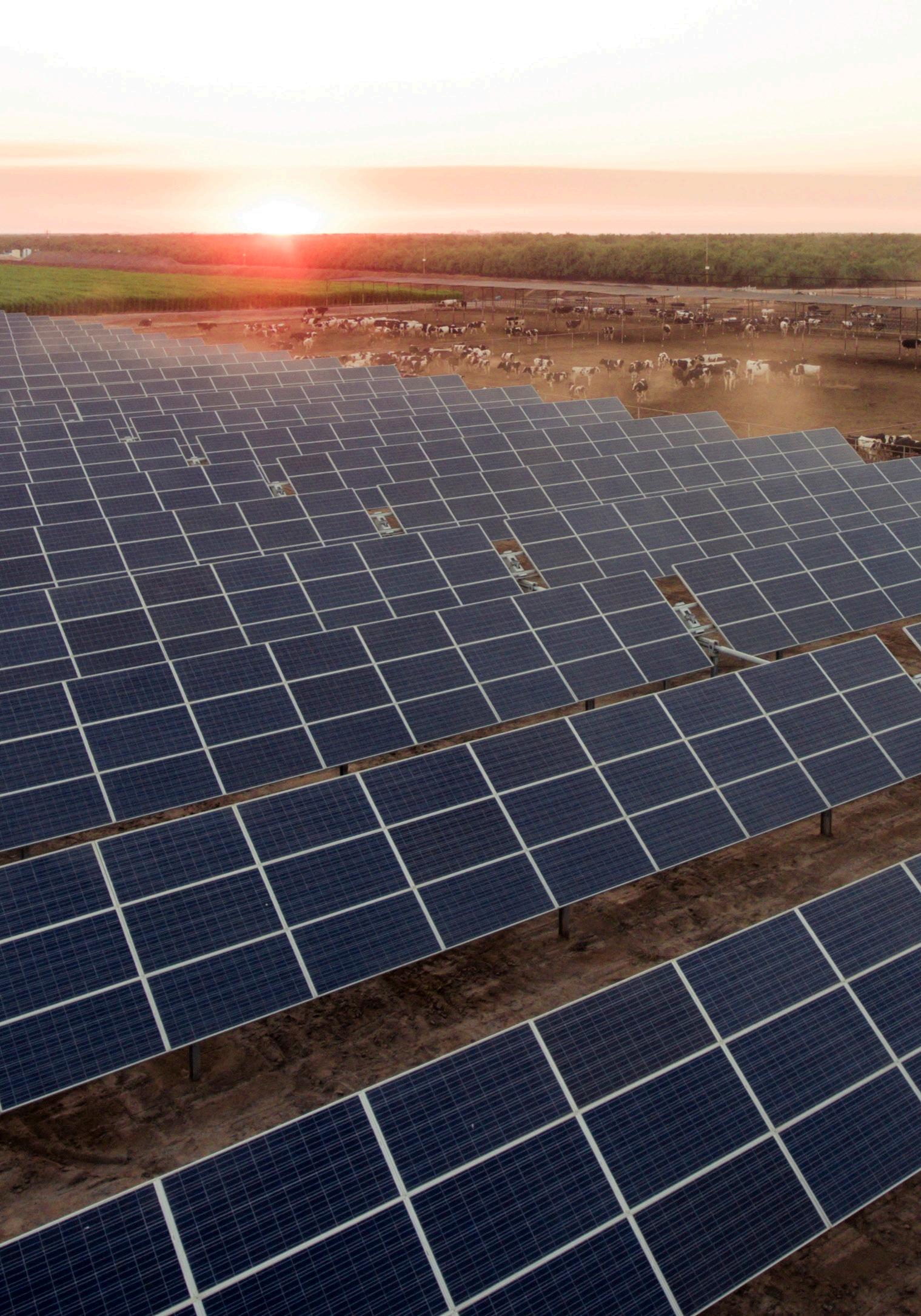
• More than 55% of the electricity used in our processing facilities is from renewable or carbon-free energy sources.
Efficiency
• 60% have incorporated GPS systems in tractors to minimize fuel waste.
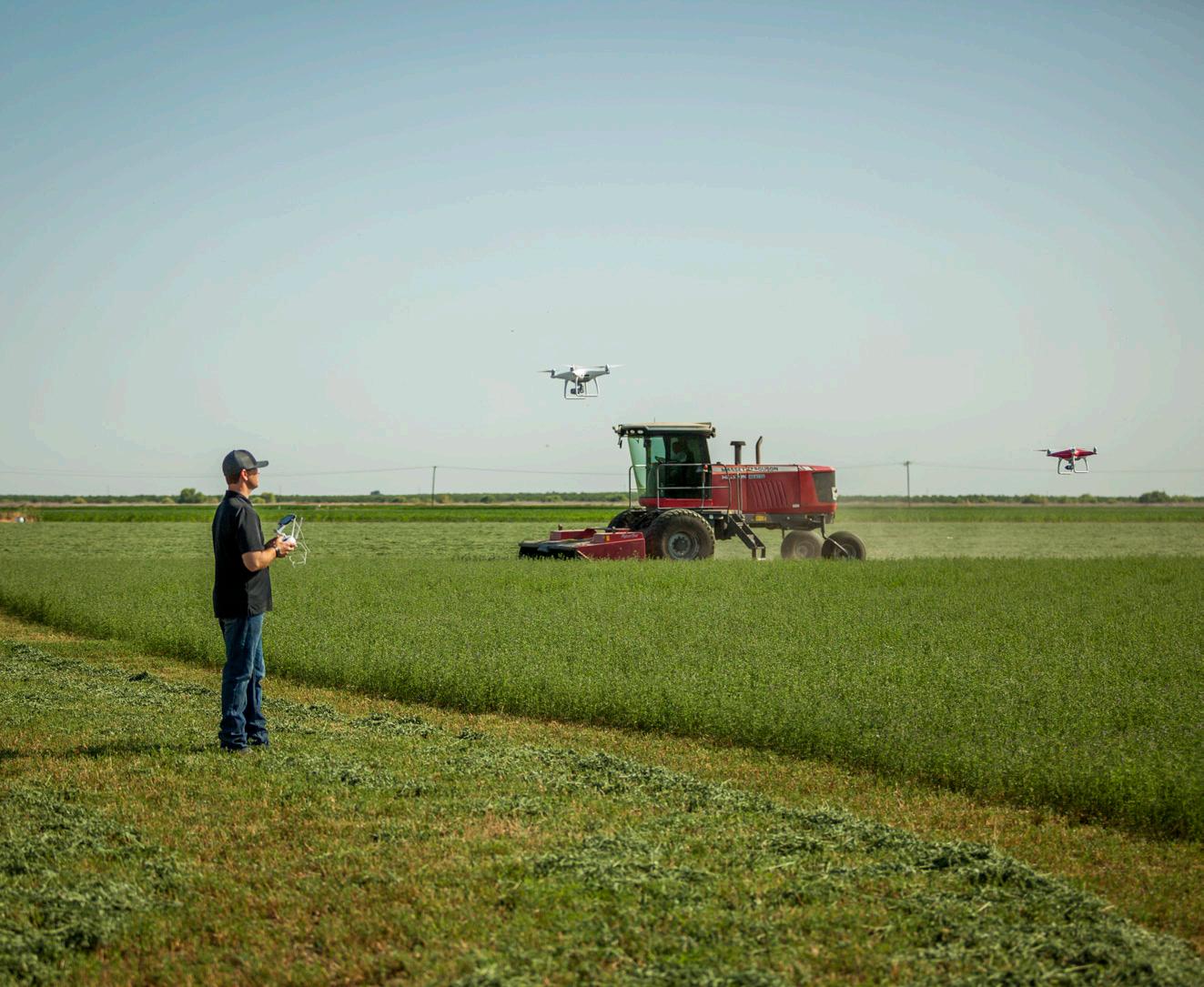
• 58% regularly compost manure to reduce methane emissions.
• 90% of CDI members have converted incandescent lighting to energy-efficient lighting, such as LED, fluorescent, or high-pressure sodium.
17 2021 www.CaliforniaDairies.com
Renewable Energy and Fuels
CDI farms are helping to shrink our collective energy-use footprint to unprecedented levels and foster California’s ambitious transition to clean, renewable transportation fuels.
CDI member farms are working hard to replace diesel in heavy-duty trucks with clean, carbon-negative renewable natural gas. As a result, our farms are not only helping further shrink our collective carbon footprint to unprecedented levels, but they are also helping foster California’s aggressive transition to clean, renewable transportation fuels. Here are a few of the highlights:
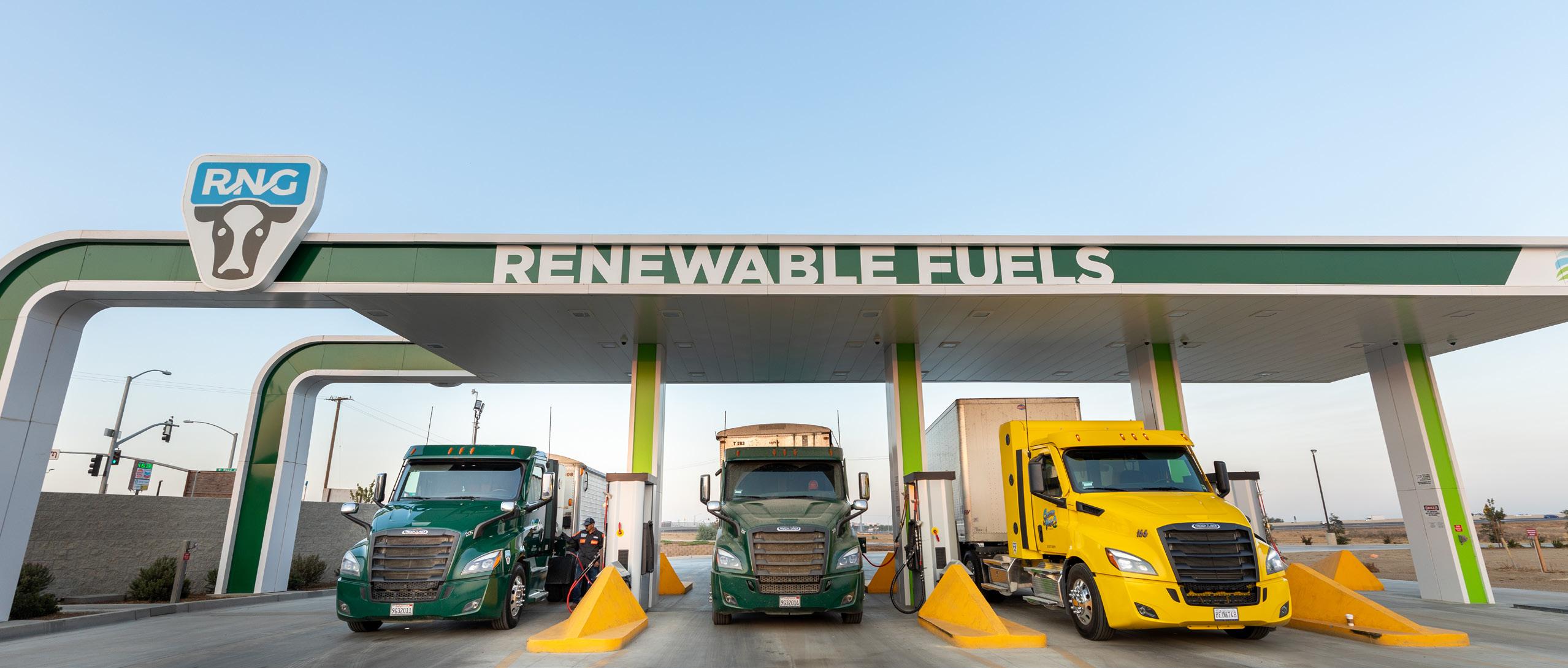
18
More than 18% of our farms, producing over 33% of CDI milk, are developing projects to create carbon-negative transportation fuel to replace the use of diesel in heavy-duty trucks.
Our farms are producing more than 18 million diesel-gallon equivalents (DGEs) of renewable natural gas, enough clean negative carbon transportation fuel to replace diesel in more than 2,000 heavy-duty trucks.
Our farms are on pace to create over 25 million diesel-gallon equivalents (DGEs) of carbon-negative transportation fuel annually, enough clean negative carbon transportation fuel to replace diesel in more than 2,750 heavy-duty trucks.
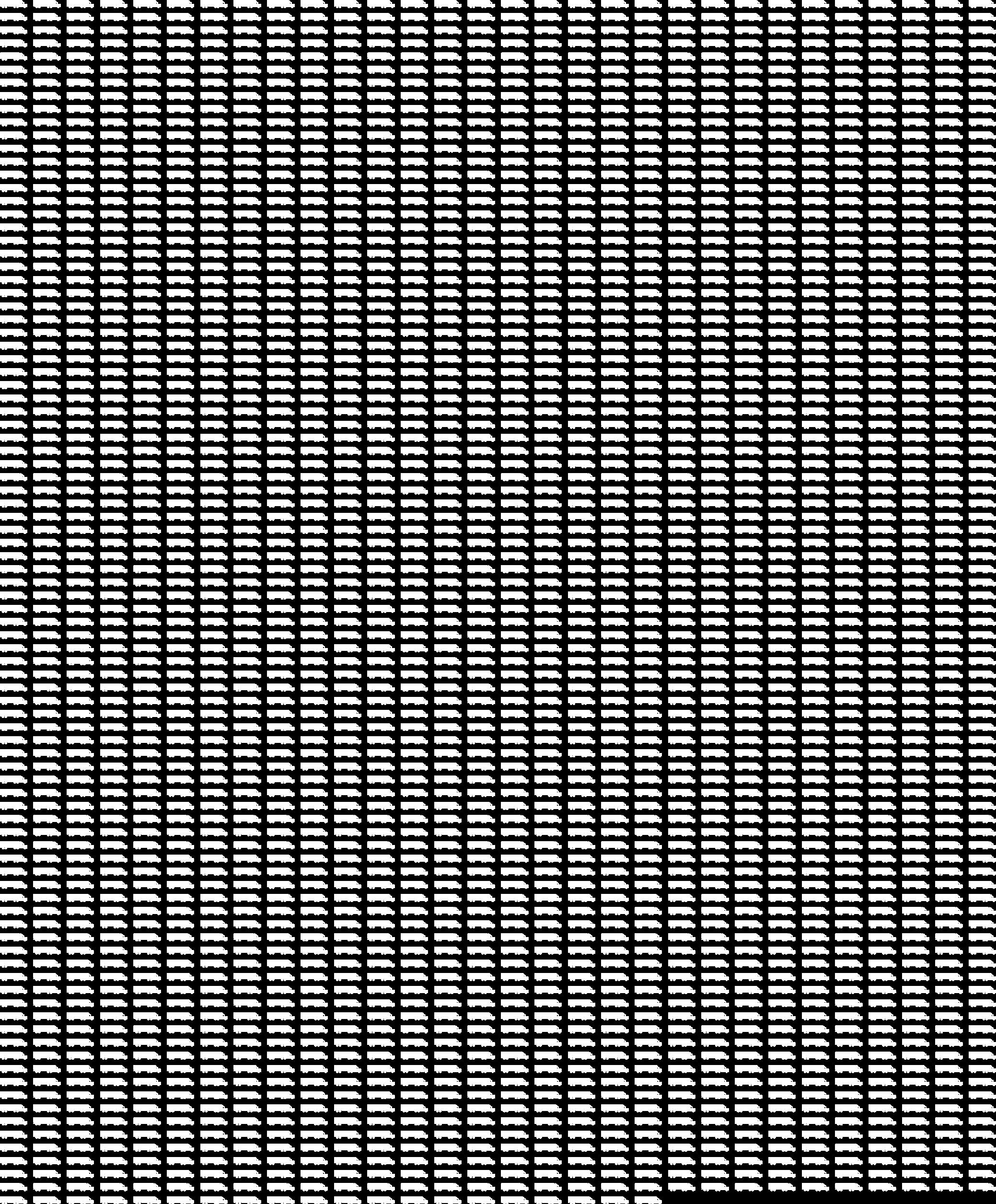
www.CaliforniaDairies.com
Responsible Water Use
On our farms and in our processing facilities, CDI emphasizes the responsible use of water, a scarce and precious resource.
On the farm
Use of agricultural byproducts
Byproducts from California crops like almond hulls, culled carrots, citrus pulp, and grape pomace supply about 40 percent of the diet of cows on CDI farms. UC Davis research determined that feeding byproducts instead of growing more feed crops reduces dairies’ water consumption by up to 1.3 trillion gallons annually.
Water quality protection
CDI dairies use certified Nutrient Management Plans and follow engineer-designed manure management practices to minimize their farms’ environmental footprint and help protect waterways and groundwater resources.
Providing drinking water to vulnerable communities
CDI dairies participate in charitable foundations and other groups that provide safe drinking water to rural residents of the Central Valley of California, many of whom rely on domestic wells as their sole source of drinking water. Dairies contributed nearly $1 million in 2021 to programs that provide free well testing and replacement drinking water for those who need it.
Recycling and reuse
Water used on the dairy is captured to wash barns and cool cows, recycling the water several times to flush manure from housing areas, ultimately reusing the water for feed crop irrigation.
Regional conservation efforts
CDI dairy farmers participate in Groundwater Sustainability Agencies (GSAs). GSAs work to ensure that water withdrawn from aquifers does not exceed the amount returned to the aquifer, ensuring longterm sustainability.
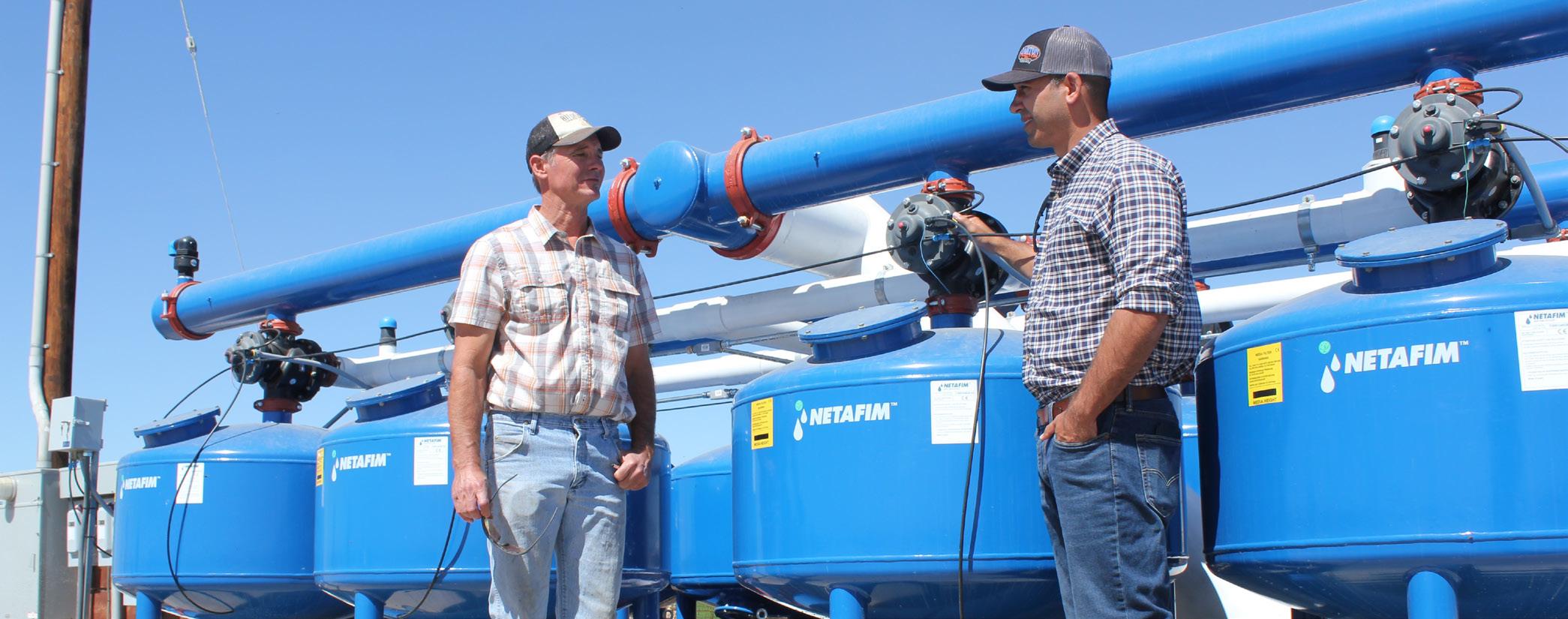
Innovation
CDI dairies are pioneering systems to grow dairy forage with less water, such as subsurface drip irrigation. Working with innovative companies and non-governmental organizations, CDI dairy farmers are using subsurface drip irrigation to apply recycled water and grow feed crops, including corn, wheat, and alfalfa, reducing water use by two-thirds.
20
CDI member-owner Michael McCree. Photo courtesy of Sustainable Conservation.
At our milk processing facilities Tipton Facility
Did you know that milk is about 87 percent water? Each year, CDI reclaims hundreds of millions of gallons of water from milk in the form of evaporator condensate when making wholesome milk powders, butter, and other products.
From 2014 to 2021, this reclaimed "cow-water" reduced the need to use fresh water from local municipalities and groundwater aquifers by nearly 30 percent or 3.19 billion gallons of water. This recycled water is then reused for facility and equipment cleaning, boiler feed water, and outdoor landscaping needs.
At CDI's 55-acre Visalia and 85-acre Tipton facilities, reclaimed water from milk processing meets 100 percent of all outdoor irrigation needs, returning clean water to the environment.
Spotlight on Tipton
CDI's Tipton facility raises the bar on water recycling, returning nearly 400 million gallons annually to local groundwater aquifers. In fact, the facility is a net positive water generator, returning 28 percent more clean water to the environment than the total water consumption of the facility in 2021.
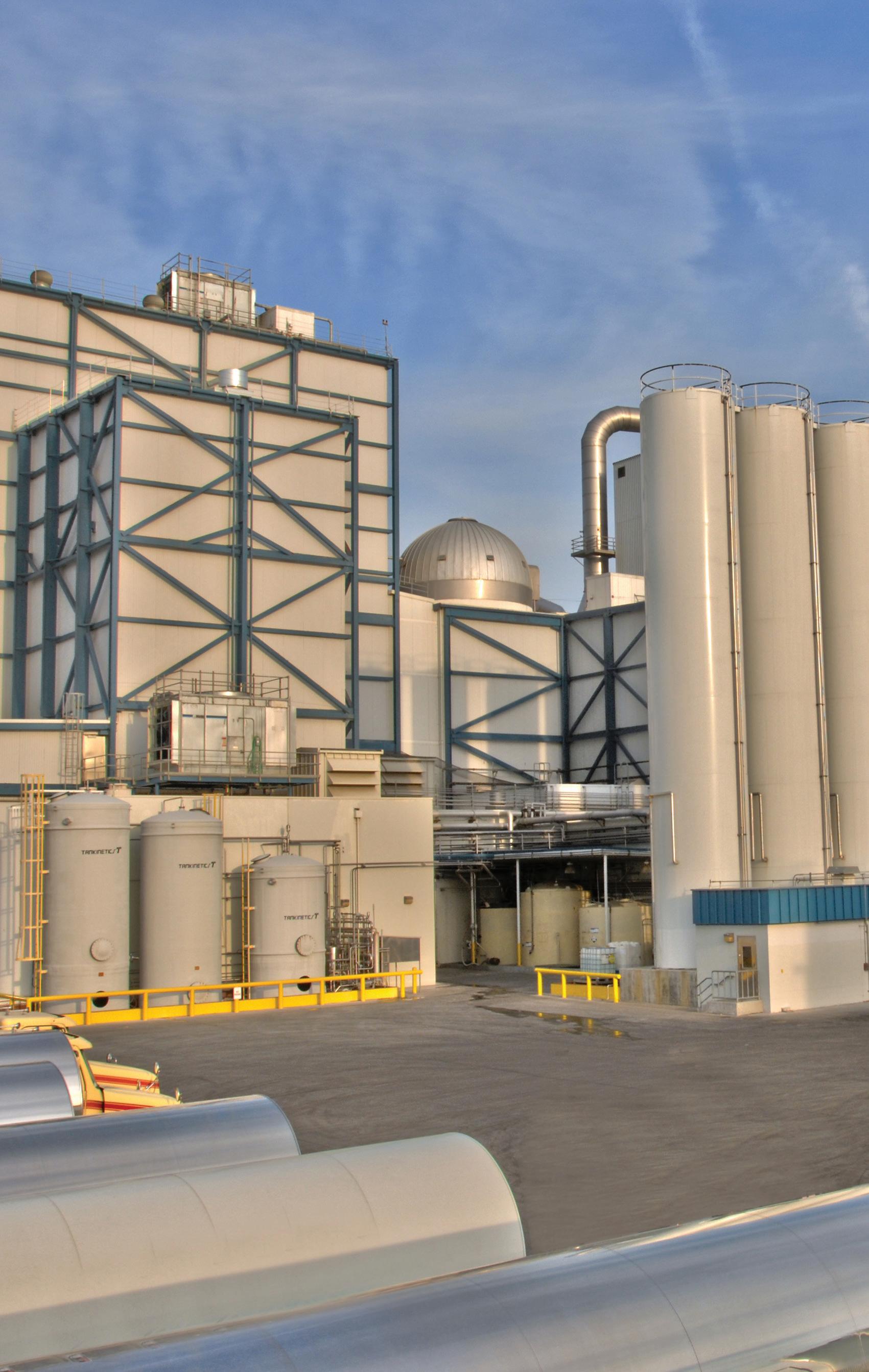
After multiple uses inside the facility, wastewater is treated and ultimately makes its way to one of nine recharge basins located on nearly 40 acres owned by CDI.
Water in the recharge basins percolates beneath the soil, eventually reaching groundwater aquifers.
Since 2011, CDI has invested nearly $5 million to design and implement this comprehensive groundwater recharge system. As a major employer in the community, CDI prioritizes investing in the long-term well-being of residents and their environment.
"We are committed to finding solutions to California's ongoing water scarcity challenge,” said Darrin Monteiro, Vice President of Sustainability and Member Relations.
"Since 2014, the CDI Tipton manufacturing facility has recharged more than 2.8 billion gallons of water to the local aquifer. That's nearly 959,000 gallons of treated water returned daily to the environment."
21 2021 www.CaliforniaDairies.com
Protecting Air Quality
On the Farm
The majority of CDI dairies are in California’s San Joaquin Valley and participate in air quality programs that are credited with reducing smogforming emissions from dairies by 30 percent. Other efforts target the reduction of dust and particulate matter. These targeted management practices require dairies to take measures to carefully manage manure storage and reduce emissions from unpaved roads, farm equipment, fuel storage, and other potential sources. CDI dairies are also pioneering the use of zero-emission clean energy, such as anaerobic digesters and solar panels. In addition, they have participated in the electrification of equipment such as feed mixers and irrigation pumps, reducing the use of diesel and providing emission reductions that benefit local and regional air quality.
CDI has secured a California Energy Commission (CEC) grant to install solar thermal and enhanced heat recovery systems, along with smart steam traps at our Visalia and Turlock South facilities.
At the Processing Facilities
CDI’s processing facilities operate under the nation’s strictest environmental regulations, resulting in significant and continuous investments. Through the continuous assessment of air quality at all six facilities, CDI strives to reduce the amount of pollutants emitted for every pound of milk we process.
CDI is committed to identifying and implementing emerging technologies to maximize energy efficiency at our facilities. This includes retrofitting lights to energy-saving LEDs and installing technologies such as energy efficient motors, variable frequency drives, and heat recovery systems.
CDI has been a leader in the California Air Resource Board’s Capand-Trade program, doing our part to reduce air pollution and other greenhouse gas emissions.
Electric Feed Mixers
A growing number of CDI member-owned farms are partnering with the San Joaquin Valley Air Pollution Control District (SJVAPCD) to transform the daily feeding process using electric feed mixers, which improve air quality while also providing climate benefits. So far, CDI dairies are on track to reduce more than 200 tons of smog-forming emissions annually by switching to electric feed mixers.
EVs at the Processing Facilities
CDI uses electric trucks or “yard dogs” to move milk tankers at our processing facilities. By replacing diesel-powered trucks, these electric yard dogs are eliminating greenhouse gas and smog-forming emissions, while creating a quieter, safer, and cleaner workplace. CDI made its first yard truck replacement in 2020 and will soon have a total of six electric yard trucks in use across four facilities.
22
We continue to innovate wherever possible to help enhance the air quality where our employees live and work.
The implementation of these natural gas savings technologies will result in a reduction of over 162,000 MMBTu per year. These savings equate to removing GHG emissions from over 21 million miles driven by an average gas-powered passenger vehicle, per year.
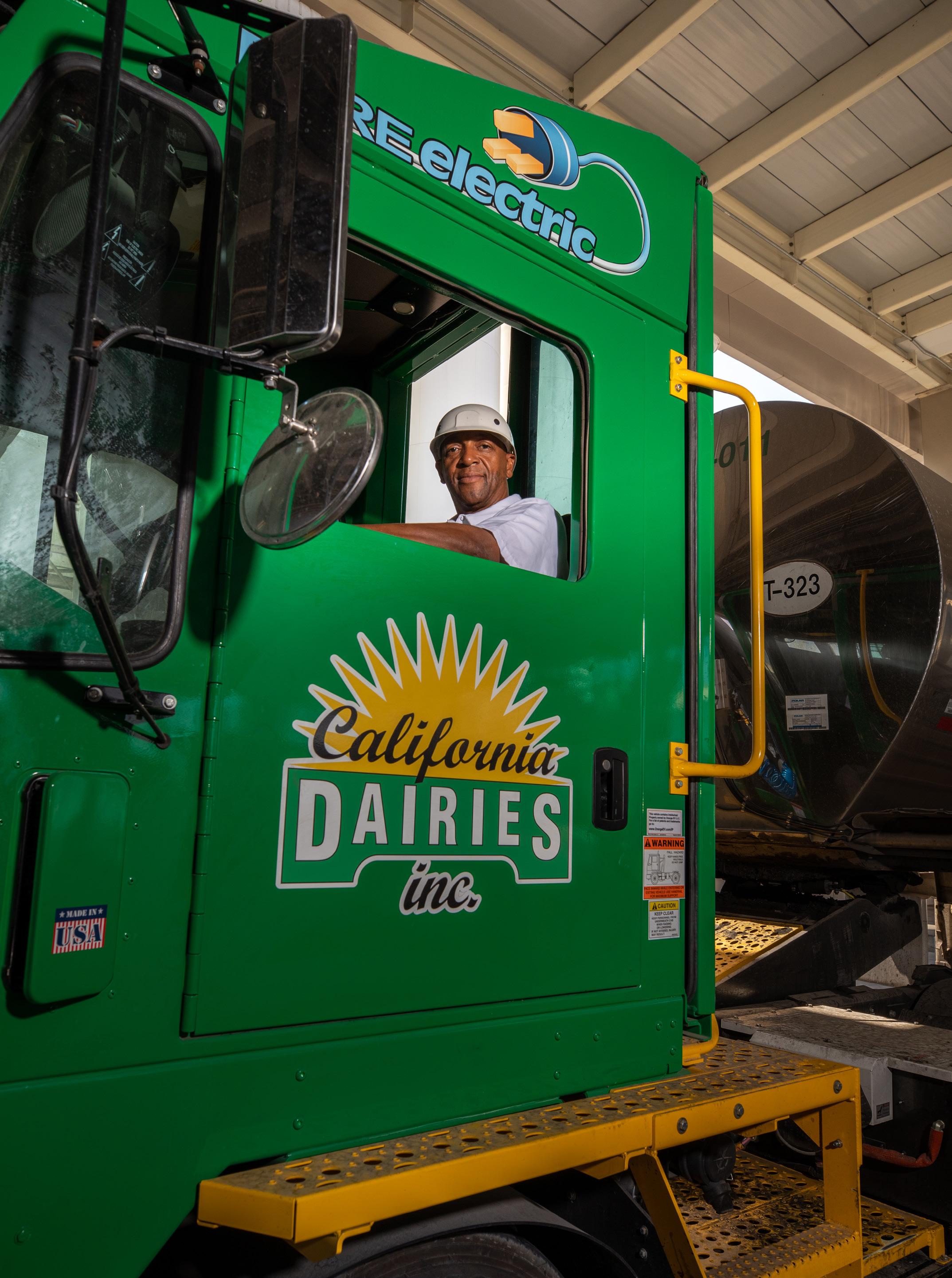 Ellis Williams, CDI Visalia, utilizing an electric truck to efficiently transport a milk tank.
Ellis Williams, CDI Visalia, utilizing an electric truck to efficiently transport a milk tank.
Recycling and Reuse
CDI dairy farms are hubs for recycling valuable resources, which cuts waste and pollution, saves water, and reduces reliance on fossil fuels and non-renewable fertilizer use. Three key ways this works:
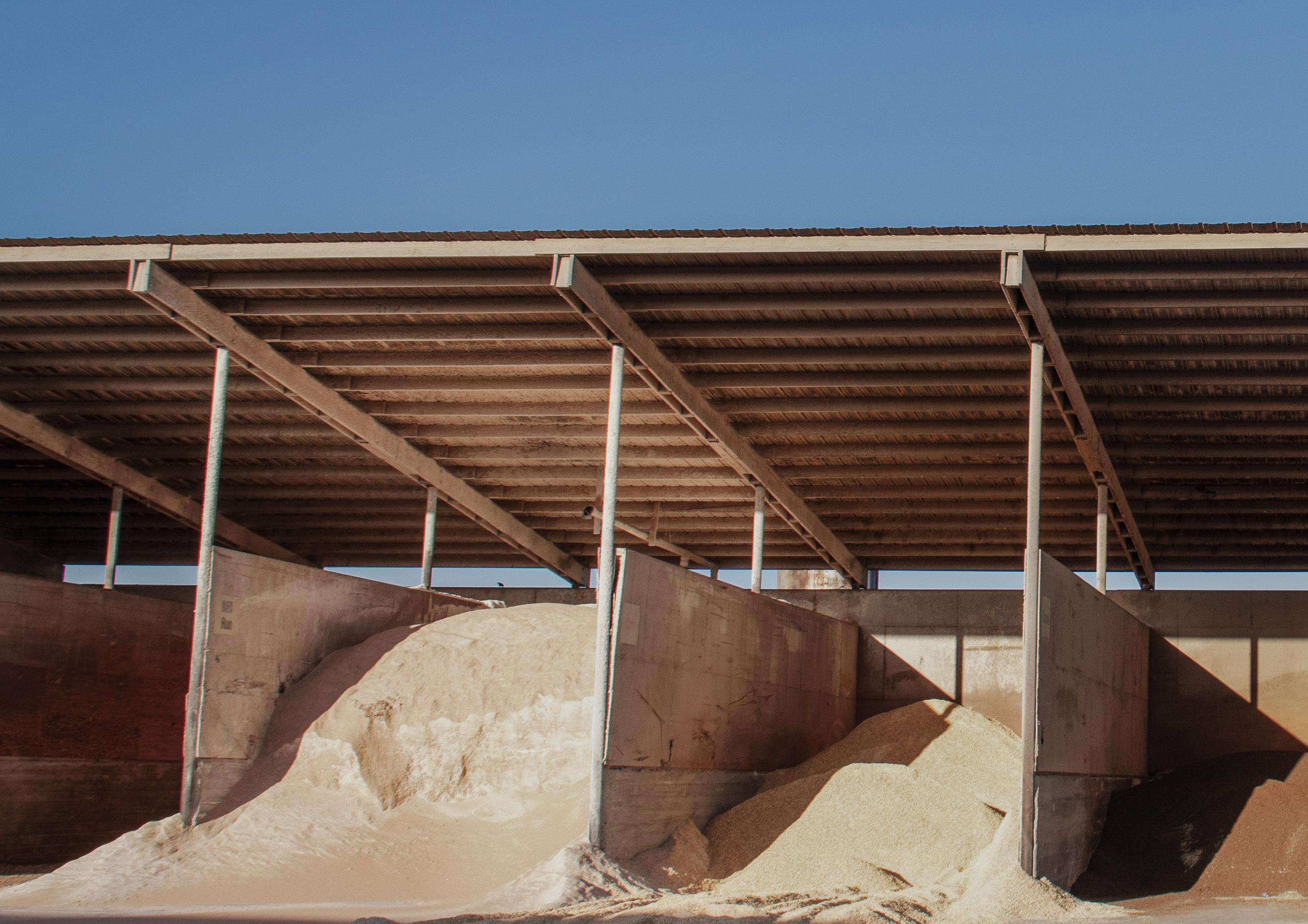
Feeding Byproducts
On CDI member-owner dairies, up to 40 percent of the herd’s nutritious feed comes from agricultural byproducts.13 This makes sense: California is an agricultural powerhouse, home to more than 400 crops, but not every part of every fruit, vegetable, and nut makes it to the supermarket. Grapes are squeezed for wine and oranges for juice, but the remaining pulp from both makes nutritious feed for cows. Instead of throwing away something people don’t want, cows convert byproducts into nutritious dairy products – a process called “upcycling.” This reduces the need for growing other feeds, helping dairy farmers use less land, water, pesticides, and fuel.
24
13giannini.ucop.edu/publications/are-update/issues/2020/24/2/by-product-use-in-california-dairy-feed-has-vital/
40% of feed comes from agricultural byproducts, greatly reducing our environmental impact.
Water Re-Use and Recycling
Water is a precious resource anywhere, but especially in California. CDI dairies go the extra mile to make sure every drop is used several times and that none is wasted. First, clean water is used to wash milking barns and to clean and cool cows; then, it is recycled to flush manure from barn floors in animal housing areas. Finally, water is captured in storage ponds, where it is mixed with irrigation water and used to grow crops year-round in the state’s Mediterranean climate.
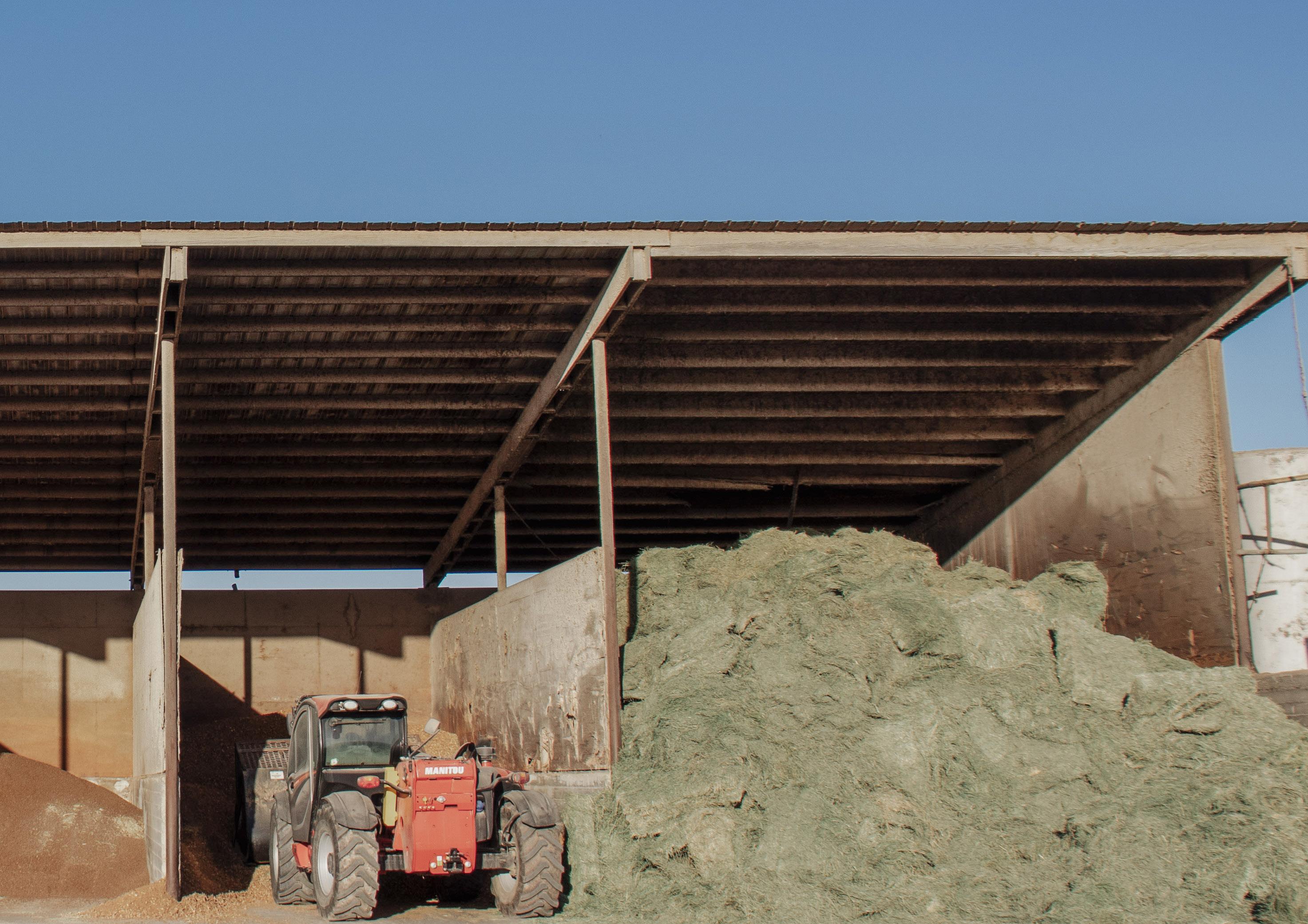
Natural Organic Fertilizer
Cows produce manure, and none of it is wasted. This natural material is used in regenerative feed-crop farming practices that help build healthy soils, reverse the effects of climate change, protect biodiversity, and improve the water cycle. For CDI member-owner farms, the use of manure nutrients reduces and sometimes eliminates the need for purchasing fertilizers like phosphorus (much of which comes from mines in faraway places like Morocco), potash (often mined in and imported from Canada), and nitrogen (produced in other states using large amounts of fossil-fuel natural gas). Instead, CDI dairies can source most of their fertilizer locally: straight from the cow. Furthermore, when dairies have surplus manure, they often provide it to neighboring farms, which also can use it to build healthy soils and as a substitute for synthetic fertilizers.
25 2021 www.CaliforniaDairies.com
Caring for Our Animals
Animal care is a top priority for our family dairy farmers. That means making sure cows, heifers, and calves receive the nutrition, veterinary care, and attention they need to thrive.
On the Leading Edge
Our member-owned dairies have been participating in the National Dairy Farmers Assuring Responsible Management (FARM) Animal Care Program since its inception. FARM was the first animal-care program in the world to have its updated standards verified through the International Organization for Standardization (ISO). With rigorous thirdparty verification, FARM ensures that every CDI dairy adheres to the best management practices for animal health and comfort, such as:
FARM Standards
Maintaining a written Veterinarian Client Patient Relationship (VCPR) that is signed annually by the farm owner and the licensed Veterinarian of Record;
Following pre-weaned calf protocols, including providing an adequate quality and quantity of colostrum after the first few hours of birth;
Working with certified industry partners to ensure safety and comfort in all aspects of animal transport;
Providing continuing education to employees related to stockmanship, non-ambulatory animals, and pre-weaned calf care.
A complete list of FARM Program standards is available at NationalDairyFarm.com
Cow Comfort
Living in California has its rewards – even for cows. Abundant sunshine, mild winters, and a Mediterranean climate allow cows to enjoy the outdoors in exercise pens and open lot corrals for most of the year. When they want a break from the California sun, or on rare days when the weather is less than desirable, most CDI dairy farmers have freestall barns for cows to rest. These open-air barns allow cows free choice of the bed they want, continuous access to water and feed, and shade to help them stay cool. Another Golden State Advantage means that restrictive tie-stalls and cow trainers are not used on any CDI member-owned dairy.
High-Quality Animal Nutrition
The health and nutrition of dairy cattle are critical to a successful dairy farm. From calves to weaned heifers, to milking and dry cows, each age group of animals enjoys a carefully crafted ration designed to optimize their health and productivity. CDI dairy farmers work with specialized nutritionists to ensure they meet each animal’s requirements for various nutrients, from carbohydrates, amino acids, and fatty acids to minerals and vitamins.
CDI Member-Owners are rewarded for their commitment to the highest standards of animal health through CDI’s Milk Quality Program. Representative milk samples are taken to monitor levels of somatic cells and other health indicators. CDI’s milk quality standards are set far stricter than the national level, as is the frequency of on-farm testing. Our Quality Program utilizes a system of on-farm bonuses and penalties to incentivize optimal milk quality production. Additionally, CDI provides technical and supportive services to member-owners to help resolve potential issues and ensure sustained compliance. The program is governed by four regional committees led by fellow member-owners of the cooperative.
The Five Freedoms of Good Animal Welfare
CDI has adopted these globally recognized standards to ensure a humane environment for all our cows.
•
Adequate food and water
• Comfort and shelter
• Proper handling
• Prevention and treatment of disease and injury
• Minimization of fear, stress, and suffering
26
“Our family dairy has worked closely with our veterinarian for many years as a trusted partner in maintaining the health, wellness, and productivity of our dairy herd. Onsite once a week, our veterinarian checks cows, identifies areas for improvement, and treats animals when needed according to our herd health plan.”
 - Gerben Leyendekker, Vice Chairman, CDI Board of Directors
- Gerben Leyendekker, Vice Chairman, CDI Board of Directors
2021 27 www.CaliforniaDairies.com
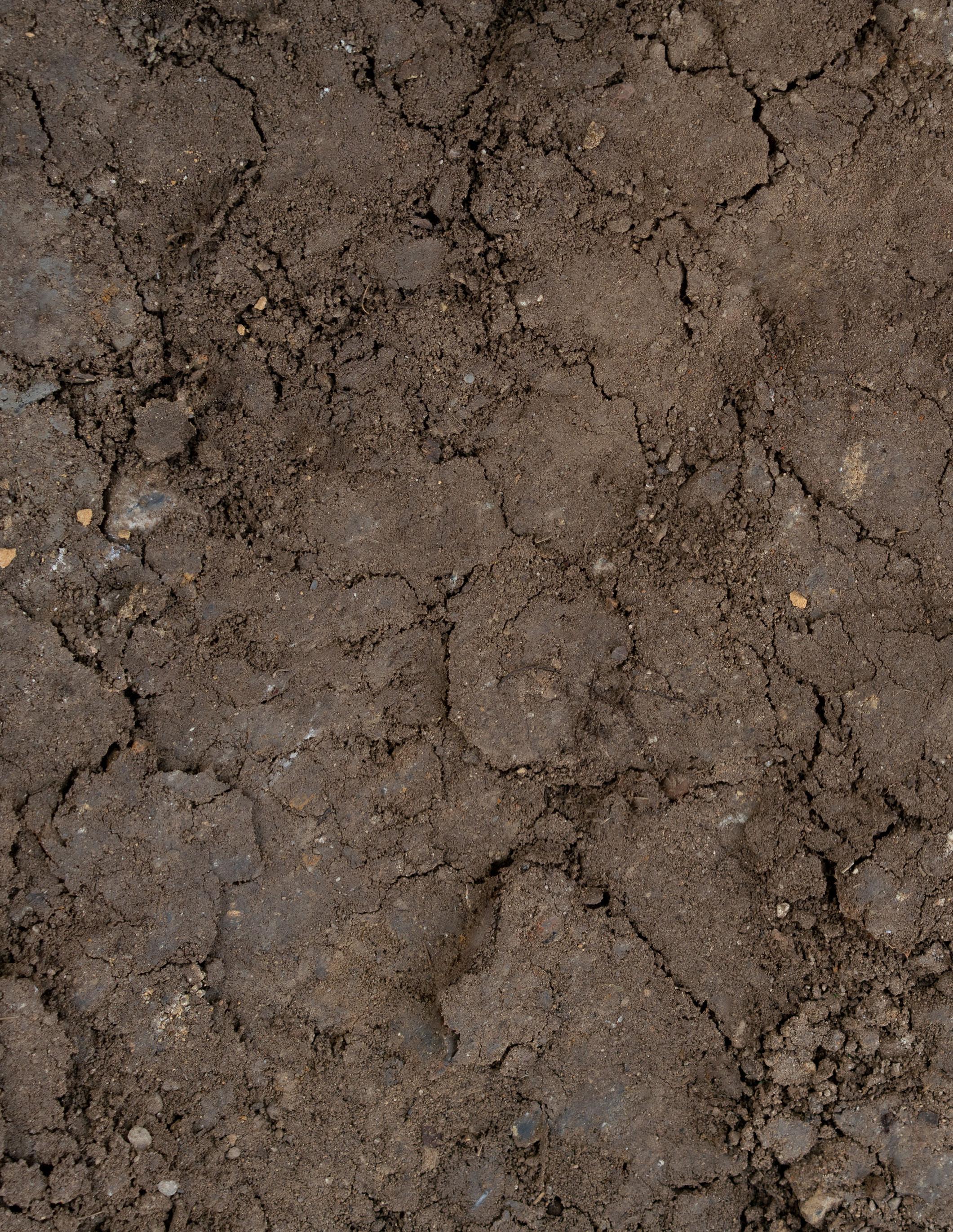
2000 N. Plaza Drive, Visalia, CA 93291 CaliforniaDairies.com Copyright 2022












































 Ellis Williams, CDI Visalia, utilizing an electric truck to efficiently transport a milk tank.
Ellis Williams, CDI Visalia, utilizing an electric truck to efficiently transport a milk tank.


 - Gerben Leyendekker, Vice Chairman, CDI Board of Directors
- Gerben Leyendekker, Vice Chairman, CDI Board of Directors
